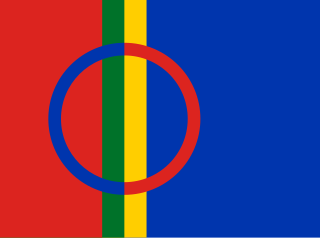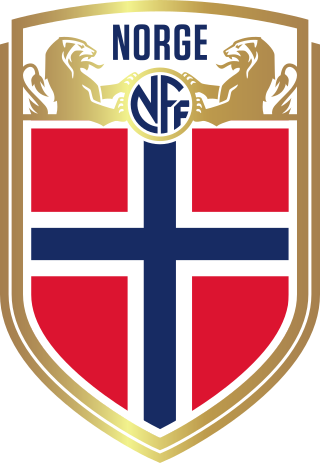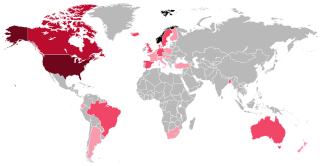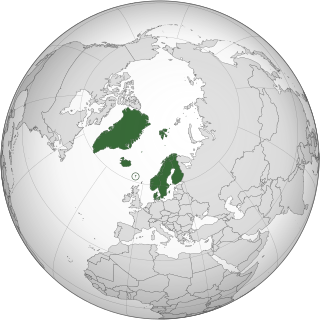Contents
| |||||
| Centuries: | |||||
|---|---|---|---|---|---|
| Decades: | |||||
| See also: | 1576 in Denmark List of years in Norway | ||||
Events in the year 1576 in Norway.
| |||||
| Centuries: | |||||
|---|---|---|---|---|---|
| Decades: | |||||
| See also: | 1576 in Denmark List of years in Norway | ||||
Events in the year 1576 in Norway.
| | This section is empty. You can help by adding to it. (July 2010) |
| | This section is empty. You can help by adding to it. (July 2010) |

Norway, officially the Kingdom of Norway, is a Nordic country in Northern Europe, situated on the Scandinavian Peninsula with a population of 5.5 million as of 2024. The remote Arctic island of Jan Mayen and the archipelago of Svalbard also form part of the Kingdom of Norway. Bouvet Island, located in the Subantarctic, is a dependency, and not a part of the Kingdom; Norway also claims the Antarctic territories of Peter I Island and Queen Maud Land. The capital and largest city in Norway is Oslo.

Norwegian is a North Germanic language from the Indo-European language family spoken mainly in Norway, where it is an official language. Along with Swedish and Danish, Norwegian forms a dialect continuum of more or less mutually intelligible local and regional varieties; some Norwegian and Swedish dialects, in particular, are very close. These Scandinavian languages, together with Faroese and Icelandic as well as some extinct languages, constitute the North Germanic languages. Faroese and Icelandic are not mutually intelligible with Norwegian in their spoken form because continental Scandinavian has diverged from them. While the two Germanic languages with the greatest numbers of speakers, English and German, have close similarities with Norwegian, neither is mutually intelligible with it. Norwegian is a descendant of Old Norse, the common language of the Germanic peoples living in Scandinavia during the Viking Age.

Oslo is the capital and most populous city of Norway. It constitutes both a county and a municipality. The municipality of Oslo had a population of 709,037 in 2022, while the city's greater urban area had a population of 1,064,235 in 2022, and the metropolitan area had an estimated population of 1,546,706 in 2021.

Scandinavia is a subregion of Northern Europe, with strong historical, cultural, and linguistic ties between its constituent peoples. Scandinavia most commonly refers to Denmark, Norway, and Sweden. It can sometimes also refer to the Scandinavian Peninsula. In English usage, Scandinavia is sometimes used as a synonym for Nordic countries. Iceland and the Faroe Islands are sometimes included in Scandinavia for their ethnolinguistic relations with Sweden, Norway and Denmark. While Finland differs from other Nordic countries in this respect, some authors call it Scandinavian due to its economic and cultural similarities.

The Sámi are the traditionally Sámi-speaking Indigenous peoples inhabiting the region of Sápmi, which today encompasses large northern parts of Norway, Sweden, Finland, and of the Kola Peninsula in Russia. The region of Sápmi was formerly known as Lapland, and the Sámi have historically been known in English as Lapps or Laplanders, but these terms are regarded as offensive by the Sámi, who prefer their own endonym, e.g. Northern Sámi Sápmi. Their traditional languages are the Sámi languages, which are classified as a branch of the Uralic language family.

Svalbard, previously known as Spitsbergen or Spitzbergen, is a Norwegian archipelago in the Arctic Ocean. North of mainland Europe, it lies about midway between the northern coast of Norway and the North Pole. The islands of the group range from 74° to 81° north latitude, and from 10° to 35° east longitude. The largest island is Spitsbergen, followed in size by Nordaustlandet and Edgeøya. The largest settlement is Longyearbyen on the west coast of Spitsbergen.

Trondheim, historically Kaupangen, Nidaros, and Trondhjem, is a city and municipality in Trøndelag county, Norway. As of 2022, it had a population of 212,660. Trondheim is the third most populous municipality in Norway, and is the fourth largest urban area. Trondheim lies on the south shore of Trondheim Fjord at the mouth of the River Nidelva. Among the significant technology-oriented institutions headquartered in Trondheim are the Norwegian University of Science and Technology (NTNU), the Foundation for Scientific and Industrial Research (SINTEF), the Geological Survey of Norway (NGU), and St. Olavs University Hospital.

Bergen, historically Bjørgvin, is a city and municipality in Vestland county on the west coast of Norway. As of 2022, its population was roughly 289,330. Bergen is the second-largest city in Norway after the national capital Oslo. The municipality covers 465 square kilometres (180 sq mi) and is located on the peninsula of Bergenshalvøyen. The city centre and northern neighbourhoods are on Byfjorden, 'the city fjord'. The city is surrounded by mountains, causing Bergen to be called the "city of seven mountains". Many of the extra-municipal suburbs are on islands. Bergen is the administrative centre of Vestland county. The city consists of eight boroughs: Arna, Bergenhus, Fana, Fyllingsdalen, Laksevåg, Ytrebygda, Årstad, and Åsane.

The Storting is the supreme legislature of Norway, established in 1814 by the Constitution of Norway. It is located in Oslo. The unicameral parliament has 169 members and is elected every four years based on party-list proportional representation in nineteen multi-seat constituencies. A member of the Storting is known in Norwegian as a stortingsrepresentant, literally "Storting representative".

The Norway national football team represents Norway in men's international football, and is controlled by the Norwegian Football Federation, the governing body for football in Norway. Norway's home ground is Ullevaal Stadion in Oslo and their head coach is Ståle Solbakken. Norway has participated three times in the FIFA World Cup, and once in the UEFA European Championship (2000).

The Human Development Index (HDI) is a statistical composite index of life expectancy, education, and per capita income indicators, which is used to rank countries into four tiers of human development. A country scores a higher level of HDI when the lifespan is higher, the education level is higher, and the gross national income GNI (PPP) per capita is higher. It was developed by Pakistani economist Mahbub ul-Haq and was further used to measure a country's development by the United Nations Development Programme (UNDP)'s Human Development Report Office.

Eliteserien is a Norwegian professional league for association football clubs. At the top of the Norwegian football league system, it is the country's primary football competition. Contested by 16 clubs, it operates on a system of promotion and relegation with the Norwegian First Division.

Norwegians are an ethnic group and nation native to Norway, where they form the vast majority of the population. They share a common culture and speak the Norwegian language. Norwegians are descended from the Norse of the Early Middle Ages who formed a unified Kingdom of Norway in the 9th century. During the Viking Age, Norwegians and other Norse peoples conquered, settled and ruled parts of the British Isles, the Faroe Islands, Iceland and Greenland. Norwegians are closely related to other descendants of the Norsemen such as Danes, Swedes, Icelanders and the Faroe Islanders, as well as groups such as the Scots whose nation they significantly settled and left a lasting impact in, particularly the Northern Isles.

The occupation of Norway by Nazi Germany during the Second World War began on 9 April 1940 after Operation Weserübung. Conventional armed resistance to the German invasion ended on 10 June 1940, and Nazi Germany controlled Norway until the capitulation of German forces in Europe on 8 May 1945. Throughout this period, a pro-German government named Den nasjonale regjering ruled Norway, while the Norwegian king Haakon VII and the prewar government escaped to London, where they formed a government in exile. Civil rule was effectively assumed by the Reichskommissariat Norwegen, which acted in collaboration with the pro-German puppet government. This period of military occupation is, in Norway, referred to as the "war years", "occupation period" or simply "the war".

Byford Dolphin was a semi-submersible, column-stabilised drilling rig operated by Dolphin Drilling, a subsidiarity of Fred Olsen Energy. Byford Dolphin was registered in Hamilton, Bermuda, and drilled seasonally for various companies in the British, Danish, and Norwegian sectors of the North Sea. In 2019, Dolphin scrapped the rig.

Denmark–Norway is a term for the 16th-to-19th-century multi-national and multi-lingual real union consisting of the Kingdom of Denmark, the Kingdom of Norway, the Duchy of Schleswig, and the Duchy of Holstein. The state also claimed sovereignty over three historical peoples: Frisians, Gutes and Wends. Denmark–Norway had several colonies, namely the Danish Gold Coast, Danish India, and the Danish West Indies. The union was also known as the Dano-Norwegian Realm, Twin Realms (Tvillingerigerne) or the Oldenburg Monarchy (Oldenburg-monarkiet).

The Nordic countries are a geographical and cultural region in Northern Europe and the North Atlantic. It includes the sovereign states of Denmark, Finland, Iceland, Norway and Sweden; the autonomous territories of the Faroe Islands and Greenland; and the autonomous region of Åland.

The Nobel Peace Prize is one of the five Nobel Prizes established by the will of Swedish industrialist, inventor, and armaments manufacturer Alfred Nobel, along with the prizes in Chemistry, Physics, Physiology or Medicine, and Literature. Since March 1901, it has been awarded annually to people who have "done the most or the best work for fraternity between nations, for the abolition or reduction of standing armies and for the holding and promotion of peace congresses." The Oxford Dictionary of Contemporary History describes it as "the most prestigious prize in the world."

The 2011 Norway attacks, also called 22 July or 22/7 in Norway, were two domestic terrorist attacks by far-right extremist Anders Behring Breivik against the government, the civilian population, and a Workers' Youth League (AUF) summer camp, in which a total of 77 people were killed.

Fjotolf Hansen, better known by his birth name Anders Behring Breivik, is a Norwegian neo-Nazi terrorist. He carried out the 22 July 2011 Norway attacks in which he killed eight people by detonating a van bomb at Regjeringskvartalet in Oslo, and then killed 69 participants of a Workers' Youth League (AUF) summer camp, in a mass shooting on the island of Utøya.